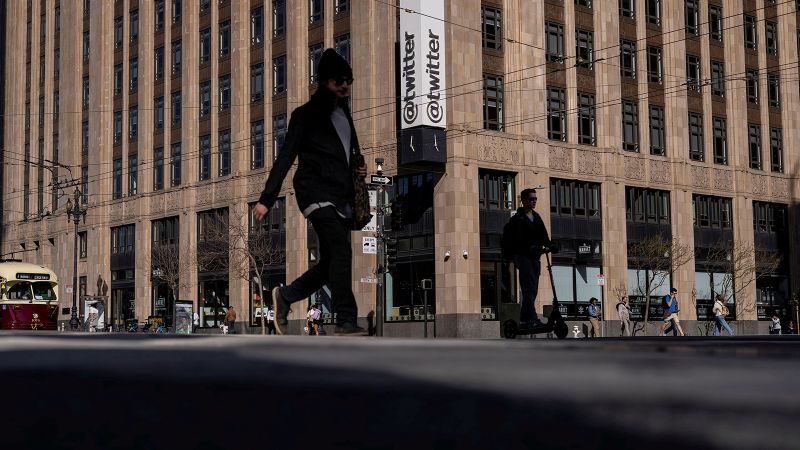ช่วงปลายปี 2022 มีบทความสรุปความเป็นไปของอุตสาหกรรมเทคโนโลยีออกมาหลายชิ้น ไปในทิศทางเดียวกันคือ อุตสาหกรรมเทคฯ ที่เคยเป็น darling ของสื่อและมหาชนมายาวนาน ตอนนี้ไม่ใช่แบบนั้นอีกต่อไปแล้ว
ปัญหาของอุตสาหกรรมเทคฯ ไม่ใช่เพิ่งเกิดขึ้น เพราะจริงๆ สั่งสมมาได้สักระยะหนึ่ง ไม่ว่าเป็นปัญหา fake news ของแวดวงโซเชียล, การผูกขาดของหลายบริษัทใหญ่, ปัญหาเรื่องแรงงาน ฯลฯ แต่ที่ผ่านมา นักลงทุนยังเชื่อมั่น หุ้นบริษัทเทคยังพุ่งทะยานฟ้า อารมณ์ว่ารวยซะอย่างทำอะไรก็ดูถูกต้องไปหมด คนที่ออกมาวิจารณ์คือคนที่ “ไม่มีวิสัยทัศน์มากพอ”
ช่วงปี 2020-2021 ภาวะโรคระบาด ผู้คนกักตัวอยู่บ้าน บริโภคสินค้าเทคโนโลยี-ดิจิทัลกันอย่างหนัก บวกกับมาตรการกระตุ้นเศรษฐกิจของรัฐบาลทั่วโลก เงินล้นโลก ทำให้หุ้นเทคโนโลยียิ่งรุ่งเรือง
แต่ปี 2022 เป็นปีที่ทุกอย่างขมวดปมเข้ามาด้วยกันแล้วแตกโพละ ทั้งปัญหาเชิงสังคม เทคโนโลยี หรือแม้กระทั่งราคาหุ้นที่เคยแข็งแกร่ง ก็พังทลายลง บริษัทเทคโนโลยีใหญ่ๆ ต้องปลดคนออกเป็นจำนวนมาก บางรายคือเป็นหลักหมื่น และรวมตัวเลขแล้วต้องมีอย่างน้อยเป็นหลักแสน
CNN เปรียบเทียบไว้น่าสนใจว่า
On the first trading day of 2022, Apple hit a new milestone for the tech industry: the iPhone maker became the first publicly traded company to hit a $3 trillion market cap, with Microsoft and Google not far behind.
วันสุดท้ายของปี 2022 มูลค่าบริษัทของแอปเปิลอยู่ที่ $2.0 trillion ถึงแม้ยังมีสถานะเป็น trillion company และหุ้นแอปเปิลถือว่าตกน้อยแล้วเมื่อเทียบกับบริษัทอื่นๆ แต่ถ้าดูเป็นมูลค่าก็หายไปถึง 1/3
สถานการณ์โลกในปี 2022 ที่เต็มไปด้วยเงินเฟ้อและสงคราม บีบคั้นให้อุตสาหกรรมเทคฯ แสดงจุดอ่อนของมันออกมาอย่างชัดแจ้ง บริษัทใหญ่แต่ละแห่งก็มีปัญหาแตกต่างกันออกไป แต่ภาพรวมทุกรายคือมีปัญหา
ส่วนเว็บไซต์ The Ringer ก็สรุปไว้ดีภายในหนึ่งย่อหน้า ว่าเกิดอะไรขึ้นบ้างในรอบปีที่ผ่านมา
It’s been a bleak year for tech, notwithstanding the industry’s best efforts to combat the general tendency toward tech pessimism in the press. There’s the metaverse, so far defined by false starts. There’s cryptocurrency, currently in financial crisis. There’s social media, suffering the longest backlash of them all on a variety of platforms: product stagnation at Facebook and Instagram; geopolitical angst and psychological concerns about TikTok; stunt management and culture-war crusading at Twitter.
The Atlantic บอกว่า myth ของวงการเทค Silicon Valley ที่เชื่อในอัจฉริยภาพของผู้ก่อตั้ง มันจบสิ้นลงแล้ว
The tech giants that have shaped our lives, online and off, over the course of the 21st century have at last hit a wall. Amazon, Alphabet, Microsoft, Meta, and Apple all saw their valuations fall, sometimes precipitously. Many slashed their workforces; at least 120,000 tech workers lost their jobs this year. The myth of the genius founder, which insulated so many of these giants from so much criticism for so long, was debunked before our eyes.
CNN บอกเหมือนกันว่า myth หรือตำนานความเชื่อว่าผู้นำของสายเทค คือผู้มีวิสัยทัศน์อันยิ่งใหญ่ มองเห็นในสิ่งที่คนอื่นมองไม่เห็น แต่ปี 2022 มันพิสูจน์ว่าไม่ใช่อีกแล้ว
For years, Silicon Valley has held up its founders as visionaries who can see far into the future. But suddenly, many of its most prominent founders had to admit a harsh truth: they couldn’t even predict two years ahead.
แถวหน้าของผู้นำวงการเทคคือ Elon Musk ผู้ที่มีวิสัยทัศน์อันยิ่งใหญ่ ทำรถยนต์ไฟฟ้า จรวดไปดาวอังคาร ขุดอุโมงค์ลอดเมือง เป็นเสมือน Tony Stark แห่งยุคสมัยที่มีตัวตนจริงๆ แต่ปี 2022 แสดงให้เห็นแล้วว่าเขาเป็นแค่ jerk
Silicon Valley has always been built on the mythology of the heroic founder, and few come more thoroughly shrouded in myth than Musk—and this was a year in which that mythology unraveled.
Musk was once the actual inspiration for the cinematic Iron Man: He was believed by many to be a superhero capable of creating electric cars, sending rockets to Mars, and delivering the future to all of us. Now he’s the thrashing, bullheaded avatar of Big Tech in the 2020s: unfathomably rich and powerful but also lodged in the mud, amplifying toxicity and discord, and at distinct risk of entering a sustained decline.
หรือถ้าเรามองไปยังคนอื่นๆ เราจะเห็นปัญหาลักษณะเดียวกันมากมาย (ในดีกรีที่น้อยลงมา) เช่น Mark Zuckerberg ไปติดหล่ม Metaverse ที่ไม่มีใครอยากได้, SBF กับปัญหาของ FTX และวงการคริปโต, Elizabeth Holmes ที่ถูกตัดสินจำคุกแล้ว
ส่วนบริษัทใหญ่อื่นๆ ถึงแม้ไม่ได้มีปัญหาที่ระดับตัวของ founder หรือผู้นำสูงสุด แต่ก็เจอปัญหาใหญ่อื่นๆ อยู่ดี เช่น Apple/Google เจอปัญหาผูกขาดการแข่งขัน กลั่นแกล้งคู่แข่ง, Amazon เจอปัญหาแรงงาน ฯลฯ และภาพรวมของอุตสาหกรรมในปี 2022 คือแทบไม่มีอะไรใหม่ ไม่มีนวัตกรรมใดๆ เกิดขึ้นสักเท่าไรแล้ว
As its mighty iPhone sales figures have plateaued and its business has grown more conservative—it hasn’t released a culturally significant new product line since 2016’s AirPods—Apple has begun to embrace advertising.
Google has behaved less like the tech innovator of its mythology and more like a monopoly of world-swallowing corporations past. It has thrown its weight around to ensure that it dominates the digital-ad marketplace and turned further toward Goliath-scale rent seeking, both in its own app store, Google Play, and in the expansion of its Cloud business.
Amazon has expanded relentlessly on the back of AWS profits, low consumer prices, and what amounts to systematic worker exploitation.
ผมคิดว่าเหตุผลหลักของปัญหาเหล่านี้เป็นเพราะอุตสาหกรรมเทคฯ เติบโตเร็วมากในรอบ 20 กว่าปีที่ผ่านมา (หากเรานับ Dotcom Bubble ปี 1999 เป็นจุดเริ่มต้น) การนำเทคโนโลยีมาใช้ปรับปรุงคุณภาพชีวิตให้ดีขึ้น ทำสิ่งต่างๆ ให้ดีขึ้น เร็วขึ้น ในราคาถูกลง เกิดขึ้นอย่างเข้มข้นในรอบ 20 ปีมานี้ ชนิดที่ไม่มีอุตสาหกรรมอื่นเทียบเคียงได้เลย
บริษัทเทคโนโลยีเหล่านี้ รวมถึงผู้ก่อตั้ง พนักงาน นักลงทุน ได้รับผลตอบแทนจากความพยายาม ด้วยเงินทอง ความมั่งคั่ง และสถานะ จนทำให้เติบโต ยิ่งใหญ่ กลายเป็น Big Tech ที่มีอำนาจเหนือตลาด (monopoly) ไร้คู่แข่งที่เข้ามากดดัน สร้างการแข่งขันได้อีก
These companies, launched with promises to connect the world, to think different, to make information free to all, to democratize technology, have spent much of the past decade making the sorts of moves that large corporations trying to grow ever larger have historically made—embracing profit over safety, market expansion over product integrity, and rent seeking over innovation—but at much greater scale, speed, and impact. Now, ruled by monopolies, marred by toxicity, and overly reliant on precarious labor, Silicon Valley looks like it’s finally run hard up into its limits.
บริษัทเหล่านี้จึงกลายเป็น Big Corporation เช่นเดียวกับที่เราเคยเห็นบริษัทน้ำมัน ธนาคาร ค้าปลีก ฯลฯ เคยเป็นมาก่อนในศตวรรษก่อนหน้า (แต่ด้วยอัตราการเติบโตที่เร็วกว่ามาก) และมีปัญหาแบบเดียวกับที่ Big Corporation เคยเผชิญมา ไม่ว่าจะเป็นปัญหา toxic ภายในองค์กรเอง หรือวิธีการทำธุรกิจที่ไม่เป็นธรรมกับแรงงาน
Call it the improbable paradox of the modern tech giant. Some of the most powerful, profitable, and expansive companies in human history—associated at least nominally with wide-ranging innovation—are stuck. They’re failing utterly to create the futures they’ve long advertised, or even to maintain the versions they were able to muster. Having scaled to immense size, they’re unable or unwilling to manage the digital communities they’ve built. They’re paralyzed when it comes to product development and reduced to monopolistic practices such as charging rents and copying or buying up smaller competitors. Antitrust investigations beckon. Their policies tend to please no one; it’s a common refrain that antipathy toward Big Tech companies is one of the few truly bipartisan issues.
ทางแก้ปัญหาเหล่านี้ จึงต้องใช้วิธีเดียวกับการแก้ปัญหา Big Corporation ในอดีต
- สังคม ต้องเลิกมองว่า Big Tech มีสถานะพิเศษกว่าชาวบ้าน แต่มองด้วยเลนส์เดียวกับ Big Corporation ธรรมดาๆ (ปัจจุบันเราไม่ได้มองบริษัทน้ำมันมีภาพลักษณ์ที่ดีอีกต่อไปแล้ว) ดังนั้นติ่ง Elon Musk ก็ควรเลิกทำงานก่อน
- การกำกับดูแลจากรัฐ ต้องเข้มข้นขึ้น อย่างเดียวกับที่เคยกำกับดูแลการผูกขาดของ Big Corporation ในอดีต (เช่น Standard Oil, AT&T) แต่ก็ต้องเพิ่มเครื่องมือใหม่ๆ เพิ่มวิธีทำงาน เพิ่มพลังให้บรรดา regulators ทั่วโลกก้าวตามให้ทันด้วย (เคยเขียนไว้ใน Breaking Up Big Tech) ซึ่งตรงนี้ก็เป็นคำถามสำคัญว่าจะเพิ่มพลังให้ regulators อย่างไร โดยที่ regulators ยังทำงานได้ดี มีประสิทธิภาพ ไม่ใช่กลายเป็นเชื่องช้าอุ้ยอ้าย ใช้อำนาจบาตรใหญ่ไปแทน
ภาพ Stark Tower ถูกทำลายย่อยยับ จาก CBR



